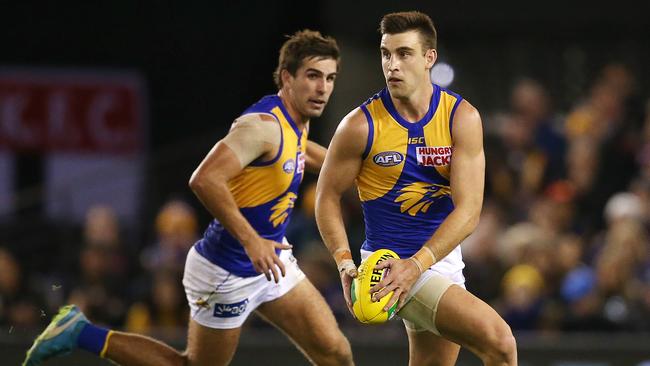AFL clubs staring down the barrel without financial aid
The financial hit delivered by coronavirus will leave most AFL clubs reliant on special assistance to survive.

The financial devastation wrought by the coronavirus crisis will leave most AFL clubs reliant on special assistance from the league in order to survive when Australia comes out the other side of the pandemic.
A day after Collingwood president Eddie McGuire likened the havoc caused by the coronavirus to a “nuclear bomb” going off for the AFL, at least one senior administrator expressed concern that even Melbourne’s biggest clubs would struggle to survive without significant help.
The Victorian-based administrator, who spoke on the condition of anonymity, suspected only West Coast might have enough reserves to survive the devastating impact in their own right.
Amid the broader health catastrophe, clubs are implementing cost-cutting measures as they seek to save between $5 million to $10m this year alone.
Several clubs are already reliant on critical AFL funding but the fiscal havoc wreaked by the coronavirus is unprecedented, AFL chief executive Gillon McLachlan has warned.
Port Adelaide chairman David Koch, who is the host of the Seven Network program Sunrise, conceded on Wednesday he was shell-shocked by the “nightmare scenario”.
Koch was among administrators who praised the AFL for deciding to begin the season with the clash between Carlton and Richmond on Thursday night.
He acknowledged the unprecedented challenge could push some clubs to the brink, a prospect certain to be shared by sides in every code around the country.
“To not have any games and no revenue, that would be exceedingly challenging. I can’t tell you how challenging that would be,” Koch told SEN Radio.
“No one wants that and we are working like hell to make sure that doesn’t happen and I am confident it won’t happen … but that risk (of insolvency for clubs) is out there and that risk is our challenge to deal with.’’
McGuire said the “finances of the football clubs and the AFL are absolutely extremely perilous at the moment”.
“Already we have lost five games of football. You can do the sums. (That is) $1.25m to $1.5m per game, times five, times nine. That is a lot of money,” the Collingwood president said.
West Coast chief executive Trevor Nisbett believes the decision to begin the season provided a “ray of hope” in an incredibly challenging time.
“It is decisive and it is a decision that means we will have a sense that there is a future. I am sure we will get through this if everyone works closely together,” Nisbett said.
Hawthorn have already put on hold plans to move to a new base at Dingley as a result of the crisis.
At least one club has asked employees on salaries of greater than $200,000 to accept a 20 per cent pay cut, with commensurate requests for staff members in less senior roles.
It was reported AFL coaches have agreed to forgo 20 per cent of their wages, though there was no official confirmation from their association.
The AFL Players Association is still working through the request put to the league’s footballers to accept a similar reduction in pay.
The salary cap for each club was due to reach $13.54m by 2022, the end of the current broadcast deal, with the average player wage rising to $389,000.
McLachlan and other AFL executives will also receive reduced pay, though the dollar value is unknown and the league has stopped publicly declaring the wage of its top administrator.
The league’s executives and commissioners were paid $10.57m in 2019 according to the AFL’s annual report. At least $2m would be saved should the entire group take a 20 per cent pay cut as a result of the crisis.
McLachlan said at the AFL season launch that the recent purchase of Marvel Stadium had strengthened the league’s financial resilience, while it also developed a Futures Fund several years ago that could be tapped given the enormity of the crisis.
It is not just the elite level that is suffering with state, suburban and regional leagues closed down until the end of May at the earliest, which has a significant financial impact.



To join the conversation, please log in. Don't have an account? Register
Join the conversation, you are commenting as Logout